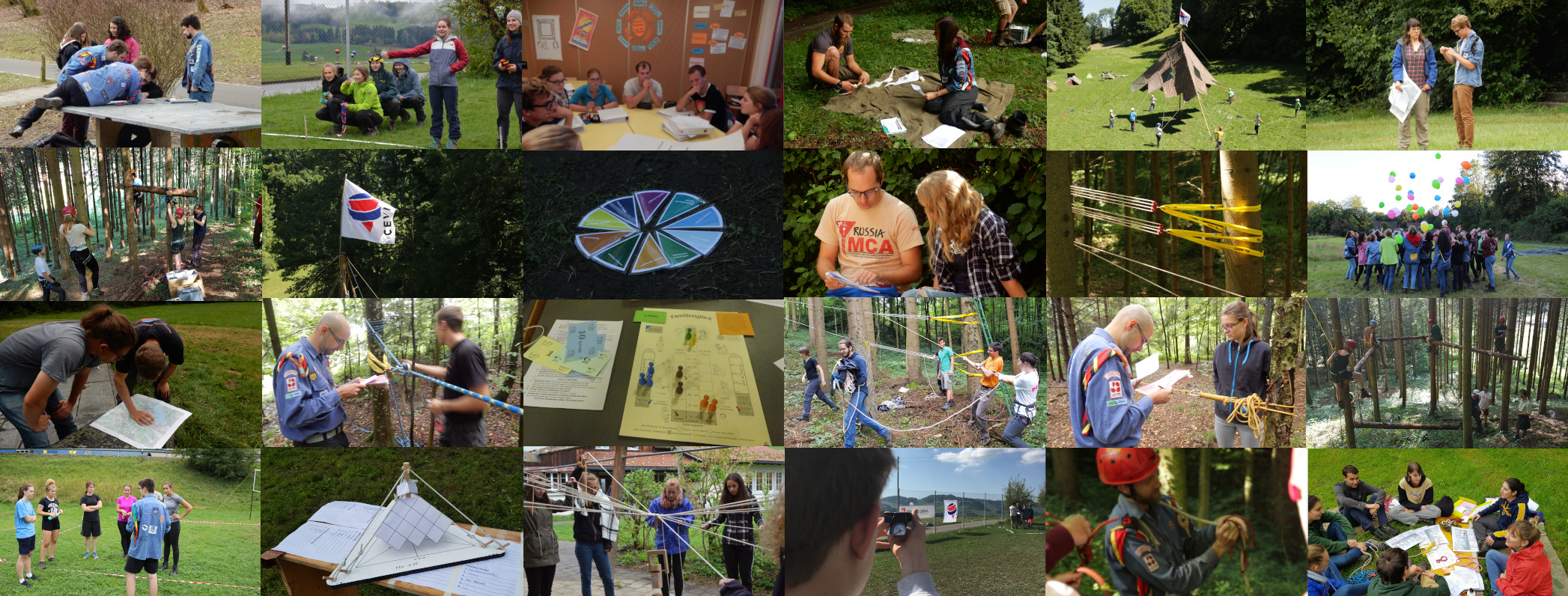Das Qualifikations-Tool bietet viele Funktionen, welche deinen Qualifikations-Prozess bei einem J+S-Kurs vereinfachen:
- Erstelle deinen Kurs, importiere deine Leitende und Teilnehmende und erstelle die Qualifikationen, alles Online. Die Teilnehmenden und Leitenden füllen die Qualifikationen Online aus.
- Jeder Teilnehmende sieht nur die eigenen Eingaben der Qualifikation. Und auch die Leitenden sehen nur die Qualifikationen der zugewiesenen Teilnehmenden.
- Importiere alle Leitende und Teilnehmende direkt aus der Cevi-DB inklusive Profilbild, Benutzernahmen und E-Mail.
- Hinterlasse einen Kommentar zu den Teilnehmenden oder lege ein Dokument ab. Teile die Teilnehmenden in drei Kategorien ein (grün, gelb, rot).
- Falls gewünscht können die Qualifikationen auch inklusive Radar-Diagramm als PDF heruntergeladen werden.
- Das Tool kann sowohl auf einem Laptop wie auch auf dem Smartphone bedient werden und kann so auch für eine rasche Rückmeldung genutzt werden.
Das Tool ist ein PHP-Projekt basiernd auf dem Framework Laravel. Um es lokal auszuführen brauchst du einen Docker Container.
Um das Tool lokal bei dir benutzen zu können musst du den Quellcode herunterladen und mittels Laravel Sail starten:
# clone the GitRepo
git clone https://github.com/cevi/qualifikation
cd qualifikation
# install the dependencies
docker run --rm \
-u "$(id -u):$(id -g)" \
-v $(pwd):/var/www/html \
-w /var/www/html \
laravelsail/php81-composer:latest \
composer install --ignore-platform-reqs
cp .env.example .env
# launch the application
./vendor/bin/sail up
# initialize the database (in another terminal)
./vendor/bin/sail artisan migrate --seed
Anschliessend kannst du dein Tool unter http://localhost aufrufen.
To run the app in production-mode, use the following command (this also works on your local machine):
docker compose -f docker-compose.prod.yml up --build [-d]The CI/CD pipeline will automatically deploy the app to the production server upon a push to the master branch.
See .github/workflows/prod_build.yml for more information.
The dev and production environment differs quite a bit. In production, we split the web server into two containers: a php-fpm container a nginx webserver
Thus, we have to share the files stored within /storage/app/public with the nginx server to make them publically
accessible. This is done via shared docker volume.
In a Docker setup all memory is volatile by default, i.e. all stored data is lost during a redeployment (e.g. deployment of a new version). We can mount specific folders as volumes to prevent such data losses. Currently we save:
- the mysql database
- the
/storage/app/publicfolder - the
/storage/app/filesfolder
all other data is volatile.
The Laravel framework is open-sourced software licensed under the MIT license.

